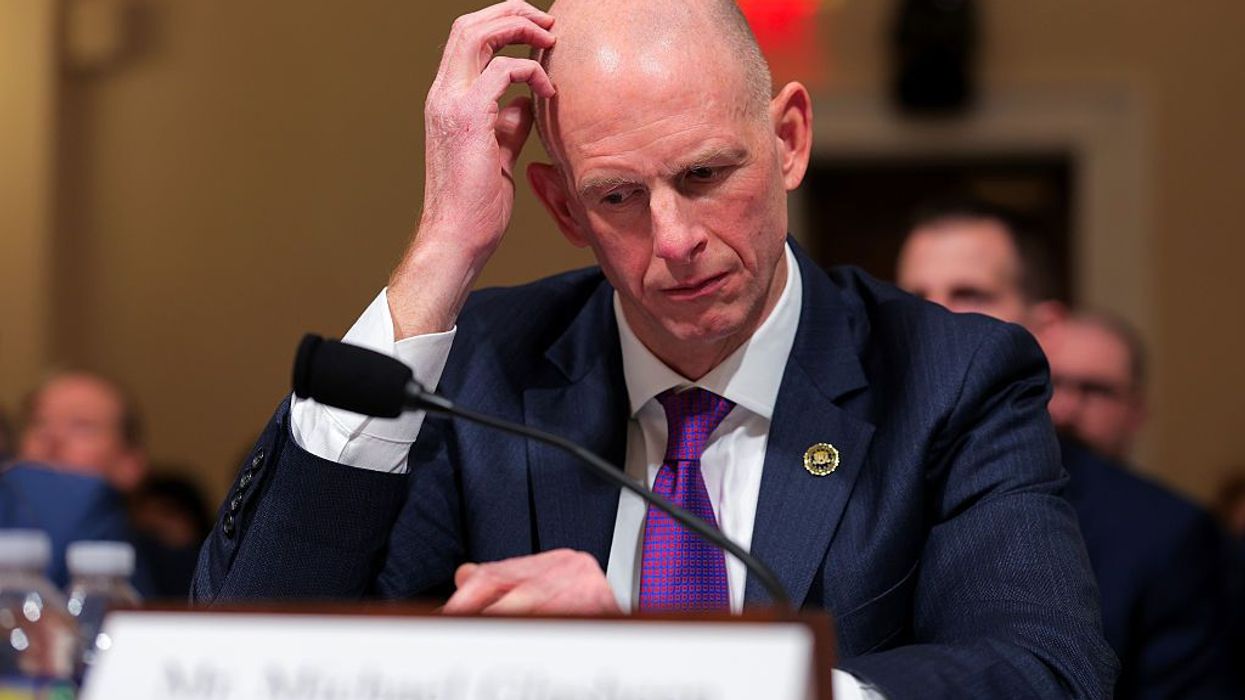June, 30 2015, 09:00am EDT

For Immediate Release
Contact:
Expert contacts:
Anna Lappé, Real Food Media Project, (917) 476-4896, anna@smallplanet.org
Kari Hamerschlag, Friends of the Earth, (510) 207-7257, khamerschlag@foe.org
Stacy Malkan, U.S. Right to Know, (510) 542-9224, stacydmalkan@gmail.com
Communications contact: Kate Colwell, (202) 222-0744, kcolwell@foe.org
Big Food and Chemical Corporations Spend Millions to Attack Organic
WASHINGTON
In response to skyrocketing growth in organic and non-GMO food sales, food and agrochemical companies have spent hundreds of millions of dollars over the past several years on stealth communications campaigns designed to defend industrial agriculture, sway opinion leaders and win over skeptical consumers, according to a new report by Friends of the Earth released today.
The report, "Spinning Food: How Food Industry Front Groups and Covert Communications are Shaping the Story of Food," documents unprecedented levels of spending from front groups, trade associations, anti-GMO labeling campaigns, federal check-off programs and vast corporate marketing budgets aimed at defusing public concern about the risks of chemical-intensive industrial agriculture and undermining the reputation of organic food.
"The food industry is using a host of covert communication tactics to shape public opinion without most people realizing the stories are being shaped behind-the-scenes to promote corporate interests," said Anna Lappe, a national bestselling author and founder of the Real Food Media Project, which works with public interest organizations around the country on popular education about food, farming and sustainability. "Our goal with this report is to inspire journalists, opinion leaders, policy makers and the public to bring increased scrutiny to the food industry's messages and messengers."
 We Interrupt This Article with an Urgent Message! Common Dreams is a not-for-profit news service. All of our content is free to you - no subscriptions; no ads. We are funded by donations from our readers.  Our critical Mid-Year fundraiser is going very slowly - only 1,397 readers have contributed so far. We must meet our goal before we can end this fundraising campaign and get back to focusing on what we do best.
 |
In the last four years alone, food and agrochemical corporations have set up six new front groups that often appear as independent experts in the media, but are in fact made up of industry or PR professionals that are pushing coordinated industry messages designed to defend industry profits and win critical national policy battles on GMO labeling, pesticides and antibiotic use in animal agriculture.
"This onslaught of industry-sponsored spin is aimed at stemming the growing tide of consumers seeking healthier food produced without GMOs, toxic pesticides or routine antibiotics," said Kari Hamerschlag, senior program manager at Friends of the Earth. "Rather than spending so much money on PR defending unhealthy and unsustainable food production, these companies should invest in meeting the growing demand for food that is good for people and the environment."
Key findings include:
- Big food and chemical companies spent hundreds of millions of dollars from 2009 to 2011 to manipulate the public conversation about our food.
- 14 front groups -- often appearing in the media as independent sources -- spent $125 million during that time frame to push coordinated messages that serve industrial agriculture interests. These include groups like the U.S. Farmers and Rancher's Alliance, whose partners include Monsanto, DuPont, Dow and Syngenta.
- Covert PR tactics these groups are using include efforts to disparage "organic moms," the growth of "native advertising" disguised to look like real news, stealth engagement on social media and the use of third-party allies to foster an echo chamber for industry talking points.
- Coordinated messages pushed by a range of seemingly independent spokespeople are making their way from PR firms to the pages of leading media outlets.
- The report details and debunks five of these key messages, including "organic food isn't worth the money" and "GMOs are needed to feed the world.
"To have an honest conversation about the future of our food system, it's crucial for consumers and news producers to understand the alarming extent of industry influence on media coverage and to do what we can to make sure we're hearing the real story, not spin," said Stacy Malkan, co-author of the report and co-director of consumer advocacy group U.S. Right to Know. The report, "Spinning Food: How Food Industry Front Groups and Covert Communications are Shaping the Story of Food," can be found at www.foe.org/spinning-food. The report includes a detailed summary of industry trade and front groups' activities, board members and spending.
Friends of the Earth fights for a more healthy and just world. Together we speak truth to power and expose those who endanger the health of people and the planet for corporate profit. We organize to build long-term political power and campaign to change the rules of our economic and political systems that create injustice and destroy nature.
(202) 783-7400LATEST NEWS
‘Total Amateur Hour’: FBI Official Says Antifa Is #1 Threat in US—But Can’t Say Where, Who, or What It Is
"Just a complete admission here that the entire ‘antifa’ threat narrative is totally manufactured by this administration," said one critic.
Dec 11, 2025
A top FBI official struggled on Thursday to answer basic questions about antifa, a loosely organized collective of anti-fascist activists that he labeled the top terrorist threat facing the US.
Michael Glasheen, operations director of the FBI's National Security Branch, testified before the US House Committee on Homeland Security that antifa was "the most immediate violent threat" facing Americans today when it comes to domestic terrorism.
But when Rep. Bennie Thompson (D-Miss.), ranking member of the Homeland Security Committee, asked Glasheen for specifics about this purportedly dire threat, he mostly came up empty.
"So where is antifa headquarters?" Thompson asked him.
Glasheen paused for several seconds and then said, "What we're doing right now with the organization..." before Thompson interrupted him.
"Where in the United States does antifa exist?" asked Thompson.
"We are building out the infrastructure right now," Glasheen replied.
"So what does that mean?" asked a bewildered Thompson. "I'm just, we're trying to get information. You said antifa is a terrorist organization. Tell us, as a committee, how did you come to that? Whether they exist, how many members do they have in the United States as of right now?"
"Well, that's very fluid," Glasheen said. "It's ongoing for us to understand that... no different from al-Qaeda and ISIS."
Thompson again interrupted and tried to make Glasheen answer his original question.
"If you said antifa is the No. 1 domestic terrorist organization operating in the United States," he said, "I just need to know where they are, how many people. I don't want a name, I don't want anything like that. Just, how many people have you identified, with the FBI, that antifa is made of?"
"Well, the investigations are active..." Glasheen said.
Thompson then became incredulous.
"Sir, you wouldn't come to this committee and say something you can't prove," he said. "I know you wouldn't do that. But you did."
GLASHEEN: Antifa is our primary concern right now. That's the most immediate violent threat we're facing
BENNIE THOMPSON: Where is antifa headquartered?
GLASHEEN: ... ... ... we are building out the infrastructure right now
THOMPSON: What does that mean? pic.twitter.com/FBzRJ5dCBj
— Aaron Rupar (@atrupar) December 11, 2025
Many observers were stunned that Glasheen appeared to know so little about what he proclaimed to be the top domestic terrorist threat facing the US.
"Total amateur hour in US law enforcement," remarked Democracy Docket news editor Matthew Kupfer, "where the No. 1 terror threat is an organization that does not formally exist and a career FBI official is dancing around before a congressional committee trying to make the Trump strategy sound legit."
Zeteo editor-in-chief Mehdi Hasan argued that Glasheen's testimony was proof that the administration was simply concocting domestic terrorism threats with zero basis in reality.
"Wow," Hasan marveled. "Just a complete admission here that the entire ‘antifa’ threat narrative is totally manufactured by this administration."
Fred Wellman, a Democratic congressional candidate in Missouri, wondered how many actual dangerous criminals are running free while the FBI focuses on taking down an organization that it apparently knows nothing about.
"This would be comical if there wasn’t real world impact from this idiocy," Wellman wrote. "We have real crimes and real threats and they are chasing a fake 'organization' for politics."
Democrats on the House Homeland Security Committee also piled on Glasheen, citing his testimony as evidence that the Trump administration is completely unserious about law enforcement.
"If your 'top threat' has no headquarters, no organization, and no definition then it’s not a top threat," they posted on social media. "The Trump administration is ignoring real threats, and the American people see right through it."
Keep ReadingShow Less
'A Forceful Stand for Our Constitution': Judge Orders Release of Kilmar Ábrego García
Judge Paula Xinis found that the Trump administration redetained the Salvadoran father of three "without lawful authority."
Dec 11, 2025
A federal judge on Thursday ordered the immediate release of Kilmar Ábrego García—who was wrongfully deported to El Salvador by the Trump administration earlier this year—from US Immigration and Customs Enforcement custody.
"Since Ábrego García's return from wrongful detention in El Salvador, he has been redetained, again without lawful authority,” US District Judge Paula Xinis wrote in her ruling. “For this reason, the court will grant Ábrego García's petition for immediate release from ICE custody.”
In early April, Xinis—an appointee of former President Barack Obama—ordered the Trump administration to facilitate Ábrego García's return to the United States after he was deported in March to the abuse-plagued Terrorism Confinement Center (CECOT) maximum security prison in El Salvador. This, after the US Department of Justice (DOJ) admitted in a court filing that Ábrego García was wrongfully deported due to what it called an "administrative error."
The US Supreme Court also weighed in on the case in favor of Xinis' ruling. However, the Trump administration refused to comply with the judge's order, arguing that it had no legal obligation to return Ábrego García to the US and could not force El Salvador's government to free him.
The DOJ dubiously contended that Ábrego García—a 30-year-old Salvadoran father of three who entered the US without authorization when he was a teenager—was a member of the gang MS-13, an allegation based on a statement from an anonymous police informant. The Trump administration deported him despite a judge's 2019 ruling that he could not be removed to El Salvador because he could be tortured there.
An attorney representing Ábrego García said at the time that his client suffered beatings and "psychological torture" while imprisoned at CECOT.
Ábrego García was transferred to a lower security Salvadoran prison before being sent back to the US on June 6 to face DOJ charges for allegedly transporting undocumented immigrants, to which he pleaded not guilty. He was immediately taken into custody and sent to an immigration detention facility in Tennessee.
On July 23, federal Magistrate Judge Barbara Holmes in Tennessee ruled that Ábrego García must be released from custody pending his trial. That same day, Xinis issued a simultaneous ruling in Ábrego García's wrongful deportation case blocking ICE from immediately seizing him once released in Tennessee and ordering the government to provide at least 72 hours' notice before attempting to deport him to any third country.
As Ábrego García was released on August 22, the US Department of Homeland Security (DHS) informed him that he could be deported to Uganda—one of several nations to which the administration has sought to send him. A bid by Ábrego García to reopen a previous bid for asylum in the US was denied in early October by an immigration judge.
Ábrego García is currently being held in an immigration detention center in Pennsylvania. Responding to Xinis' latest ruling, DHS spokesperson Tricia McLaughlin said Thursday that "this is naked judicial activism by an Obama-appointed judge."
"This order lacks any valid legal basis and we will continue to fight this tooth and nail in the courts," she added.
Advocates for Ábrego García welcomed Thursday's ruling.
"For months, the Trump administration has sought to deny Kilmar Ábrego García his rights to due process and fair treatment by our justice system," US Sen. Chris Van Hollen (D-Md.)—who met with Ábrego García in El Salvador in April—said on social media.
"Today’s ruling by Judge Xinis—requiring the government to immediately release him—is a forceful stand for our Constitution and all of our rights," he added.
Lydia Walther-Rodríguez, chief of organizing and leadership at CASA, hailed what she called "a moment of joy and relief."
“Kilmar finally gets to return home to his family, where he belongs," she said. "No one should be separated from their loved ones while fighting for justice.”
Keep ReadingShow Less
How the Past 25 Years of Big Oil's Lie-Filled Ads Have Delivered 'Climate Catastrophe'
"Big Oil's climate deception has evolved from lying about the problem to lying about solutions," said the head of the Center for Climate Integrity.
Dec 11, 2025
A group that supports communities' efforts to hold Big Oil accountable for decades of deception related to the climate emergency released a report on Thursday after reviewing more than 300 advertisements from four fossil fuel giants since 2000.
Over the past decade, people across academia, civil society, Congress, and journalism have examined the evolving lies of oil and gas giants, which have long been accused of using Big Tobacco's playbook.
"Using evidence from congressional investigations, advertising, and public relations documents, independent journalism, and watchdog reports," the new analysis states, "Big Oil's Deceptive Climate Ads explains how the pervasive and misleading messaging in BP, Chevron, ExxonMobil, and Shell’s advertisements has not only misrepresented the companies' business practices, but, over the span of two and a half decades, effectively cultivated a larger, deceptive narrative that oil and gas companies are leaders in the fight against climate change, when in fact they are actively fueling climate catastrophe around the globe."
The Center for Climate Integrity (CCI) report notes that "while oil and gas companies and their trade associations publicly denied the risks and realities of climate change for decades, growing public understanding of climate science around the turn of the 21st century eventually meant that outright denial was no longer sufficient to protect their bottom line."
NEW: For 25 years, four oil giants sold false climate promises through deceptive ad campaigns.Our report examined 300+ ads from BP, Chevron, Exxon, and Shell from 2000-2025. Together they push a false narrative that Big Oil is leading climate solutions. In reality, they're fueling catastrophe.
[image or embed]
— Center for Climate Integrity (@climateintegrity.org) December 11, 2025 at 8:54 AM
"During this period, major oil and gas companies began to reposition themselves publicly as active partners in the fight against climate change, even while they continued to increase fossil fuel production, invest minimally in clean energy, oppose energy efficiency initiatives, and promote technically or economically infeasible solutions," the document details.
"To convey this misleading image to the public," the publication continues, "Big Oil companies carried out extensive advertising campaigns, inundating the public with messaging that creates an overall deceptive portrait of their true role in the climate crisis."
CCI sorted the ads across seven categories of deception: emissions reductions, renewables investments, individual action, natural gas, carbon capture and storage, hydrogen, and algae biofuels. The group found that "these skillfully crafted advertisements often include partially truthful statements but omit relevant contextual information to create an inaccurate or incomplete representation of the initiative, product, or technology they promote."
"For instance, advertisements that portray natural gas as beneficial for the climate because it 'lowers emissions' are misleading by omission, because although gas produces less CO2 and other pollutants than coal when burned, it still emits significant quantities of greenhouse gases, including CO2 and methane, that pose a serious threat to the climate," the publication points out. "This tactic, known as paltering, has been at the core of Big Oil companies' climate advertisements for the past 25 years."

The report also acknowledges the public response: "Market research shows BP's 'Beyond Petroleum' campaign increased brand favorability among US and UK audiences, leading viewers to associate the oil giant with efforts to reduce carbon emissions at a time when it was the largest producer of fossil fuels in the UK and North America. Chevron's 'Real Issues' campaign, which promoted its energy conservation initiatives and renewables investments, improved the company's reputation among ad-exposed audiences."
The publication comes as the climate emergency continues to worsen, with deadly impacts, and world leaders fail to take adequate steps toward "a just, equitable, fossil-free future." Meanwhile, communities continue to call for not only action to limit future global warming but also consequences for the big polluters that created the global crisis.
The report similarly concludes that "oil and gas companies—including BP, Chevron, ExxonMobil, and Shell—must be held accountable for the damages their deception has caused. As climate accountability lawsuits filed by communities across the US make their way through the courts, ongoing advertising deception by the four oil majors' in this report demands further scrutiny and investigation."
CCI president Richard Wiles echoed that demand in a Thursday statement: "Big Oil's climate deception has evolved from lying about the problem to lying about solutions. For two-and-a-half decades now, these companies have sold the public a false and misleading image of their industry as working to solve the climate crisis, all while doubling down on fossil fuels and making the problem worse."
According to Wiles, "Any business that floods consumers with such brazenly deceptive advertising must be held accountable."
Keep ReadingShow Less
Most Popular


